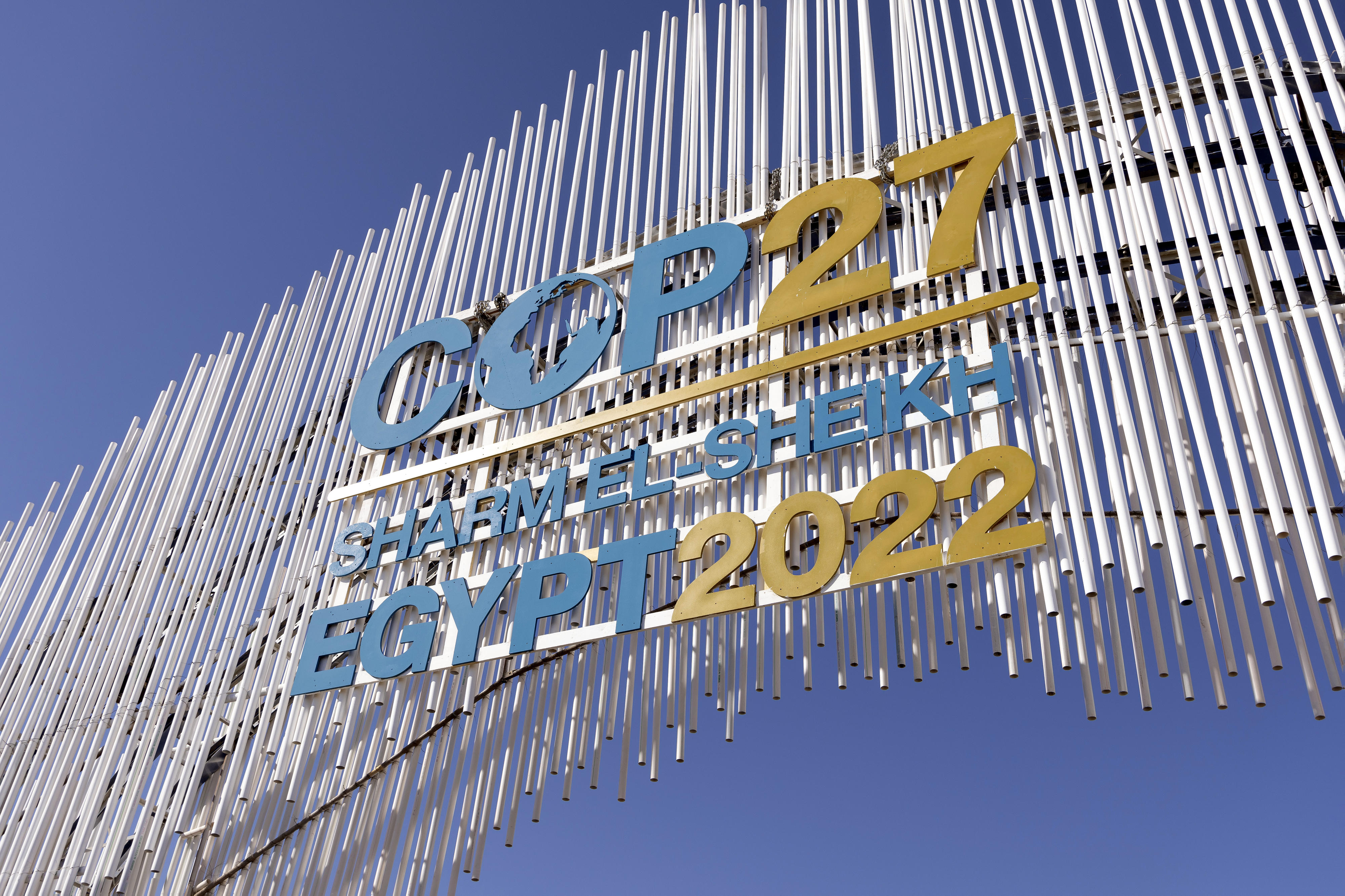Event building with lettering: COP27 Sharm El-Sheikh, Egypt 2022
Copyright© Thomas Imo/photothek.net
COP27 International climate conference in Egypt brings tangible implementation advances in the fight against climate change
Development Minister Svenja Schulze said: “Negotiations are and will continue to be an important part of climate conferences. But what happens, besides, in terms of tangible implementation is becoming more and more important. At the implementation level, we have managed to achieve more tangible advances at this conference than ever before. These are results that are faster, better and more coordinated because we have the climate conference. For that reason alone, this huge meeting of the international community has already been worthwhile.”
During the international climate conference, the German development ministry has launched numerous climate initiatives. They include, for instance:
The Global Shield against Climate Risks: In its role as G7 Presidency, Germany has started, in collaboration with the V20 and the Group of the 58 particularly vulnerable countries, the implementation of a Global Shield against Climate Risks. The Global Shield is intended to provide countries and people particularly affected by the impacts of climate change with financial protection against climate-related losses and damages. The initiators of the Global Shield have been able to win over more donors to support it at the climate conference. The V20 have selected the countries that will be the pathfinder countries for the insurance packages under the Global Shield. Germany is contributing 170 million euros towards the funding to launch the initiative. Further information here.
Implementation of the Global Shield: Germany and Pakistan have laid the foundations for working together under the Global Shield against Climate Risks in Pakistan, one of the pathfinder countries. This was agreed by Development Minister Svenja Schulze and Pakistan’s Climate Change Minister Sherry Rehman in Sharm el-Sheikh. The agreed activities include, in particular, supporting Pakistan’s climate risk modelling via the Global Climate Risk Modelling Alliance and expanding social protection in Pakistan. Further information here.
Indonesia and the G7 agree a Just Energy Transition Partnership: During COP27, Indonesia’s President, Joko Widodo, and heads of government from the G7 and from other countries launched a Just Energy Transition Partnership (JETP) at the G20 Summit. The German G7 Presidency has been instrumental in driving forward what Federal Chancellor Olaf Scholz described as a “lighthouse project for multilateral cooperation, energy transition and sustainable investment.”
Commitment for global forest conservation: Federal Chancellor Olaf Scholz announced at a meeting of heads of state and government in Sharm el-Sheikh that the German government has doubled the commitment it made for forest conservation last year to two billion euros. Further information here.
Green hydrogen: Together with the Federal Ministry for Economic Affairs and Climate Action, the Development Ministry has founded a platform for establishing a green hydrogen economy. The German government is investing a total of 550 million euros in these activities. The contribution of 250 million euros from the Development Ministry is being used to promote the establishment of a hydrogen value chain in the Ministry’s partner countries. This investment is intended to help create new, green jobs.
Trilateral agreement on the energy transition in Egypt: Germany and the US have agreed with Egypt to work together on an accelerated and socially just energy transition towards using more renewable energy, with the objective of removing five gigawatts of gas power from the grid. Germany’s contribution to this initiative is 250 million euros. Part of this amount consists of a debt swap agreed with Egypt. Instead of making debt repayments, Egypt will use the money to ensure social equity for workers employed in the gas-fired power stations, among other things. Further information here.
Kenya and Germany agree a Climate Partnership: Kenya is already a pioneer in the field of renewable energies. Roughly 90 per cent of the country’s electricity generation is based on geothermal power, wind, hydropower and solar energy. The aim of this Partnership is for Kenya to reach 100 per cent power generation using renewable energy by 2030. This will have a ripple effect across the entire region and will show other developing countries that development without fossil fuels is indeed possible. Further information here.
Launch of the Team Europe initiative on adaptation and resilience in Africa: Together with the EU Commission, France, Denmark and the Netherlands, the German government has launched an initiative to improve the coordination of European support for adaptation to climate change in Africa. The initiative covers projects worth a total of more than one billion euros. Press release of the European Commision here (External link).
Scaling up adaptation finance: Germany is supporting the climate action work of the African Development Bank with an additional 40 million euros. These funds are intended for investing in particular in adaptation to climate change. The African Development Bank has set up a separate climate window just for this investment in its African Development Fund.
Background information on climate finance
In 2021, the German government made 5.34 billion euros of budget funds available for public sector climate finance. Just over half (51 per cent) of German climate finance was used for mitigation and 49 per cent was used for adaptation measures. This means that, for the first time, Germany achieved a balance in its funding for these two areas – an important issue for developing countries. Together with the private funding which was mobilised via KfW and the DEG with this commitment, Germany’s contribution to the 100-billion target amounts to 8.1 billion euros. Further information here.
